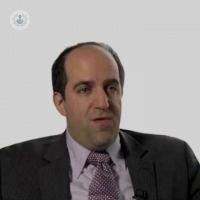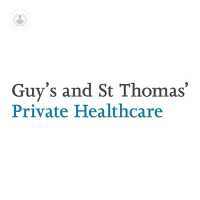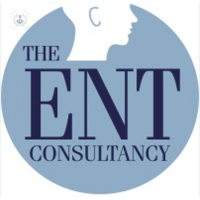What is allergic rhinitis?
Allergic rhinitis is a condition where the nose becomes inflamed by allergens, and is characterised by the presence of the typical symptoms of a cold such as sneezing, an itchy nose, stuffy nose or nasal congestion, mucus, and loss of smell.
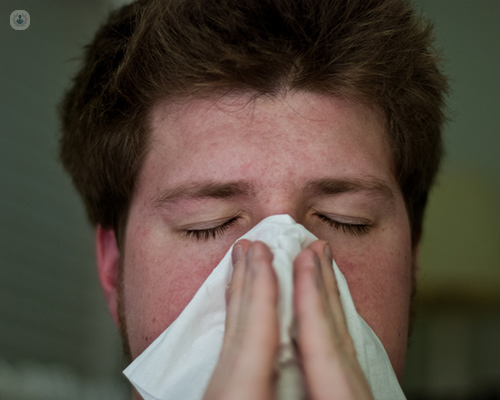
What are the symptoms?
Allergic rhinitis generally causes symptoms which are similar to those of a cold, such as a blocked or runny nose, and sneezing or itching. These symptoms will come on soon after being exposed to the allergen. In some, these reactions are common all year round as a reaction to a particular allergen, while in others, these reactions are seasonal as the allergen only appears sporadically in the year, e.g tree pollen.
Over time, symptoms sometimes ease and improve, but it is unlikely that they ever completely disappear.
Causes of allergic rhinitis
The most common cause of allergic rhinitis is an allergy to a particular substance (i.e allergen), such as dust mites, pollen or the urine/saliva of certain animals.
Can it be prevented?
Allergic rhinitis can be avoided rather than prevented, by avoiding the allergen itself. In the case of pollen, for example, it is recommended to stay indoors, sleep with the windows closed and drive with the windows up.
What is the treatment?
Treatment of allergic rhinitis will be based on avoiding contact with the allergen itself. Depending on the case, appropriate medications should be administered (antihistamines, decongestants, allergy vaccines, etc). You can visit an allergy specialist who can recommend the appropriate medication or treatment.
11-13-2012 08-01-2023Allergic rhinitis
Mr Guna Reddy-Kolanu - Otolaryngology / ENT
Created on: 11-13-2012
Updated on: 08-01-2023
Edited by: Aoife Maguire
What is allergic rhinitis?
Allergic rhinitis is a condition where the nose becomes inflamed by allergens, and is characterised by the presence of the typical symptoms of a cold such as sneezing, an itchy nose, stuffy nose or nasal congestion, mucus, and loss of smell.

What are the symptoms?
Allergic rhinitis generally causes symptoms which are similar to those of a cold, such as a blocked or runny nose, and sneezing or itching. These symptoms will come on soon after being exposed to the allergen. In some, these reactions are common all year round as a reaction to a particular allergen, while in others, these reactions are seasonal as the allergen only appears sporadically in the year, e.g tree pollen.
Over time, symptoms sometimes ease and improve, but it is unlikely that they ever completely disappear.
Causes of allergic rhinitis
The most common cause of allergic rhinitis is an allergy to a particular substance (i.e allergen), such as dust mites, pollen or the urine/saliva of certain animals.
Can it be prevented?
Allergic rhinitis can be avoided rather than prevented, by avoiding the allergen itself. In the case of pollen, for example, it is recommended to stay indoors, sleep with the windows closed and drive with the windows up.
What is the treatment?
Treatment of allergic rhinitis will be based on avoiding contact with the allergen itself. Depending on the case, appropriate medications should be administered (antihistamines, decongestants, allergy vaccines, etc). You can visit an allergy specialist who can recommend the appropriate medication or treatment.


Allergies in adulthood: Is it possible to develop an allergy later in life?
By Dr Raghu Raju
2025-01-29
Allergies can develop in adults, even if they weren't a problem during childhood. Dr Raghu Raju, a renowned consultant in respiratory medicine and allergy, explains which are the common adult-onset allergies and what can trigger them in this informative guide. See more


Cryotherapy for a runny nose
By Mr Okechukwu Okonkwo
2025-01-29
Chronic runny nose, medically known as rhinorrhoea, can be an incredibly frustrating condition that impacts daily life. It may stem from various causes, including allergic rhinitis, non-allergic rhinitis or conditions like chronic sinusitis. Cryotherapy, a minimally invasive treatment, has emerged as an effective option for addressing this issue, particularly when traditional treatments fail to provide relief. See more
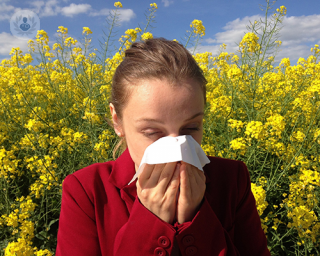

Is it allergic rhinitis or another condition? Knowing when to consult a specialist
By Dr Olympia Tsilochristou
2025-01-29
Allergic rhinitis, also known as hay fever, is a common condition that causes symptoms like sneezing, nasal congestion, and itchy eyes. Dr Olympia Tsilochristou, distinguished Consultant Allergist, provides expert insight into allergic rhinitis, discussing its causes, symptoms, and when to consult a specialist to ensure an accurate diagnosis and effective treatment. See more


Allergic rhinitis: Why allergies are causing your children's nose and eyes to swell
By Professor Helen Brough
2025-01-28
Affecting around one in every five people in the UK, allergic rhinitis can make allergy management even more difficult than it already is. Here to explain how it impacts children and young people is leading consultant paediatric allergist Dr Helen Brough. See more
Experts in Allergic rhinitis
-
Professor Adam Fox
Allergy & immunologyExpert in:
- Food allergies
- Child allergies
- Asthma
- Allergic rhinitis
- Allergic urticaria
- Anaphylaxis
-
Professor Helen Brough
Paediatric allergy & immunologyExpert in:
- Food allergies
- Respiratory allergies
- Immunotherapy
- Allergic rhinitis
- Eczema
-
Dr Lee Noimark
Paediatric allergy & immunologyExpert in:
- Food allergies
- Allergic urticaria
- Asthma
- Allergic rhinitis
- Drug allergy
-
Mr Samit Ghosh
Otolaryngology / ENTExpert in:
- Allergic rhinitis
- Sinusitis
- Rhinoplasty (nose job)
- Endoscopic sinus surgery
- Nasal polyps
- Nasal septal perforation
-
Mr Pavol Surda
Otolaryngology / ENTExpert in:
- Sinusitis
- Blocked nose
- Allergic rhinitis
- Allergic Sinusitis
- Septoplasty
- Rhinoplasty (nose job)
- See all

Guy’s and St Thomas’ Private Healthcare
Guy’s and St Thomas’ Private Healthcare
Guy’s Hospital, Great Maze Pond
No existe teléfono en el centro.
By using the telephone number provided by TOP DOCTORS, you automatically agree to let us use your phone number for statistical and commercial purposes. For further information, read our Privacy Policy
Top Doctors

The ENT Consultancy
The ENT Consultancy
23 Craven Rd, Reading
No existe teléfono en el centro.
By using the telephone number provided by TOP DOCTORS, you automatically agree to let us use your phone number for statistical and commercial purposes. For further information, read our Privacy Policy
Top Doctors

Shirley Oaks Hospital - part of Circle Health Group
Shirley Oaks Hospital - part of Circle Health Group
Poppy Lane, Croydon CR9 8AB
No existe teléfono en el centro.
By using the telephone number provided by TOP DOCTORS, you automatically agree to let us use your phone number for statistical and commercial purposes. For further information, read our Privacy Policy
Top Doctors
-
Guy’s and St Thomas’ Private Healthcare
Guy’s Hospital, Great Maze Pond, SE1 South Bank LondonExpert in:
- Allergy
- Cardiology
- General Surgery
- Maxillofacial Surgery
- Thoracic Surgery
- Maternity care
-
The ENT Consultancy
23 Craven Rd, Reading , ReadingExpert in:
- Voice disorders
- Ear infection
- Hearing loss
- Adult and paediatric services
-
Shirley Oaks Hospital - part of Circle Health Group
Poppy Lane, Croydon CR9 8AB, South LondonExpert in:
- General Surgery
- Orthopaedic surgery
- Plastic surgery, reconstructive and aesthetics
- Gastroenterology
- Obstetrics and Gynaecology
- Neurosurgery
- See all
- Most viewed diseases, medical tests, and treatments
- Respiratory infection
- HHT (Hereditary Haemorrhagic Telangiectasia)
- Snoring
- Polysomnography (sleep study)
- Immunotherapy
- Nystagmus
- Child nutrition
- Migraine
- Paediatric rheumatology
- Autoimmune diseases



